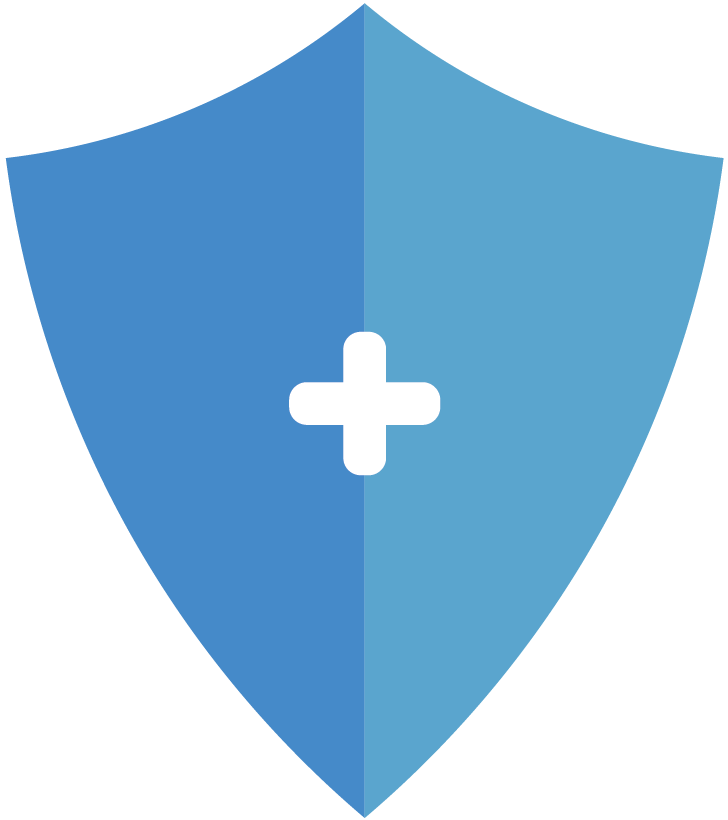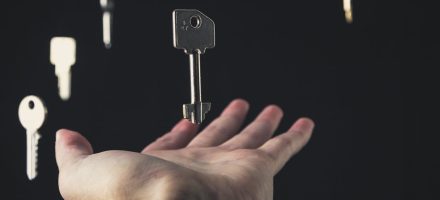Ever wondered what life after porn could look like?
We recently interviewed Brant Cole — husband, father, pastor, and former porn addict turned porn recovery coach.
“Back in 2016, after literally so many years of trying different methods, different programs of quitting porn throughout my life, I was caught watching porn while at work as a pastor.”
Brant shares his high-stakes porn recovery journey and what is possible for you, too.
Table of Contents
- My Holistic Porn Recovery Journey – A Process of Discovery
- Why People Get Hooked on Porn: The Big Picture
- Roots: How My Childhood Made Me Vulnerable To Porn
- My Turning Point: Rebuilding A Life Without Porn
- What Church People Need to Understand about Porn Addiction
- Tips To Create a Fulfilling Life After Porn
- Full Interview [VIDEO]: Tyler Patterson and Brant Cole, 5 Steps To Freedom from Porn
My Holistic Porn Recovery Journey - A Process of Discovery
At this point in my life, I was married. I was about to become a father. I was a pastor, like I said, and so I had to admit the sobering reality that nothing had changed in my life.
Even though I had subscribed to a lot of things at different points in my life, nothing had changed because nothing had really changed about how I was living my life.
I realized it was time to make a change.
Initially my senior pastor called me into his office and I knew I could have been fired because he got my report emailed to him. Instead of firing me, he connected me with a counselor.
That set me on the journey of true and holistic recovery dealing with all of who I am, my brain, reviving my body, restoring my relationships with God and my significant relationships in my life.
Then I started coaching hundreds of people.
It got to a point where some of the things I’ve discovered were different enough that it was worth launching out and starting Revive Recovery on my own.
I’m passionate about helping people who are looking to truly not just quit porn – but build a life after porn that is so fulfilling that porn doesn’t actually solve anything for them anymore. *(Links to reach Brant Cole at the end.)
Why People Get Hooked on Porn: The Big Picture
We don’t realize this, but we go to porn and masturbation to meet a deeper need under the surface.
There’s actually deeper issues going on at the heart level that I think a lot of people aren’t quite conscious of, and porn feels good in the moment.
It’s fun initially. You think, Oh man, this isn’t gonna hurt anybody. I’m doing it by myself. I’m keeping it a secret.
Over time, what you realize is it’s meeting a need in such a terrible, destructive, abusive way in your own heart.
In order to get free from that, you can’t just set up restrictions and say, Okay, I’m gonna stop. I’m gonna white-knuckle. I’m gonna use willpower to get out.
Because what’s happening is there’s something deeper yearning for that connection, that sense of nurture, that sense of attention, and that feeling of excitement in a relationship.
Your brain thinks it’s a real relationship.
Porn affects your brain.
You look at what neuroscience teaches us about how we’ve got these mirror neurons that imagine ourselves in that scene. Your brain’s not separating that out and saying, Oh, that’s not the same as a real relationship.
Porn becomes a controllable source of “clickable love.”
Neurologically speaking, you think you’re in that moment. When you try to quit porn, it’s almost like your brain is in shock from not having a regular controllable source of, clickable love, so to speak.
So when you try to quit, your brain’s like, Ah, I need to survive. I need to survive. I’m gonna die. I’m being deprived of the source of love in my life.
Roots: How My Childhood Made Me Vulnerable To Porn
It’s interesting because before I really started to quit porn, I don’t know if I would’ve ever really connected this to my recovery journey until looking back.
But I had this deep sense of insecurity in my relationships.
I had self-loathing, a resentment or contempt built up for myself.
Even at times, there was a subtle underlying sense of unworthiness when I was relating to God.
And there was always this sense that I’m not doing enough, or I’m not enough. I’m not worthy enough, or I’m not good enough. Or I’m not safe to trust somebody else to love me.
I think when I started to kind of unpack this in counseling and in my own recovery journey as well, it started to point back to when I was younger.
Identifying negative patterns from childhood is part of rebuilding a life without porn.
My parents are wonderful, but early on they were still figuring a lot of stuff out. I kind of entered into their relationship before they were married, and they were still in process as I was growing up.
What I subtly kind of gathered in my own upbringing – and no one told me this – but I just came to this conclusion. If anyone’s gonna take care of me, it’s gonna be me. It’s not gonna be them.
That’s not a conclusion a child should really ever have to get to. So many times I found myself as like a 9-year-old, 10-year-old, 12-year-old – counseling my parents through their issues.
I shouldn’t have had to put my issues on hold as a kid so that I could help my parents work their issues out. I think subtly I shut off my sense of being needy, of relying on other people to love me and to care for me, and to nurture me.
And there was this subtle implication that you’re on your own to figure that stuff out.
Porn provided the support and validation I was missing.
And so I did – with porn – and obviously, that was a very destructive relationship. I thought at first it felt really good and exciting.
I was in control, and I could click on it whenever I wanted, and porn was always there for me.
Other symptoms of that same exact thing was around other people, I’m not really secure.
Because unless I perform, unless I show how worthy I am, I’m not really that acceptable. Who I am isn’t good enough. I’ve gotta show that I’m good enough.
So it was always that constant sense of trying to prove my value to other people and earn my sense of validation with God.
When it came to work, there was always a regular source of obvious validation. You do something. You see the result. You put in the effort. You see the outcome.
But when it came to my own relationships with God, with myself, with my wife, with some of those significant relationships, I never believed that I was just worthy of being loved.
And so there was always a sense of performance.
Inevitably with that comes the insecurity on the flip side. If I am just needy, I don’t think that this would work out very well, so I would shut that down.
At the end of the day, I just got so exhausted with that.
My Turning Point: Rebuilding A Life Without Porn
Especially when it comes to being in a position where, as a dad, as a pastor, as a husband, the consequence for failure becomes higher and higher and higher. I felt like I had to hide more and more and more.
It just became so exhausting to live this way. Not confident, insecure, just constantly trying to perform.
Getting caught watching porn by my pastor was exactly what I needed.
I just got so worn out until the point where I broke and I just didn’t try to hide it anymore, and I got caught. Switchfoot has a song called “The Beautiful Letdown” that really describes that devastating, embarrassing, shaming event.
Community support was key for my recovery from porn addiction.
Yet it was exactly what I needed, because I needed to wake up to the reality of trying to run from people’s love and affirmation. Really that’s what you need. Yes, people let you down in the past, but people are also part of the process of healing.
Through that I began to rely on the community. I began to, in a weird way, express my neediness – to learn how to ask others, lean on others, or rely on others for love. As I began that, heart healing began.
Certainly there were behaviors to adjust. Absolutely. There were blockers to put in place and boundaries to respect.
But those things only set up the pathway to really get at what was truly under the surface, which were the root causes of where my heart was truly wounded.
As that began to heal, I had systems and patterns put in my life to move me towards health and move me away from addiction.
That’s when I began to discover that, Oh, this thing that it (porn) was trying to solve this whole time, I don’t need it to solve anymore because I’m healing.
What Church People Need to Understand about Porn Addiction
What I would love people to realize in the church is that way more than just you are dealing with porn addiction.
Every Sunday I get up, and I preach to a congregation.
And I don’t think they all realize that the majority of the people sitting around them either currently struggle with porn or are directly in an immediate relationship with somebody who does – whether they’re married, or it’s in their family, or something like that.
Recent Barna research shows that many Christians struggle with porn use.
One of the pieces of research that I read is from Barna, a Christian data collection agency, which says that around 84% of porn users report having nobody in their lives who are helping them avoid porn. Specifically 82% of these are Christian porn users.
Among men it’s somewhere around 8 out of 10 and among women in the church, somewhere around 5 or 6 out of 10 are currently on a – at least once a month – pattern of using porn.
The majority of those people (which by the way that is already a majority) and the majority of people that I preach to every Sunday, this is a current struggle.
Sadly, the majority of church people who are struggling with porn say no one’s helping them with it.
Asking for help is an act of courage.
It’s just that no one wants to be the first one to speak up.
The reality is a lot of people are really, really struggling with this and don’t know where to go.
They don’t know how to ask for help.
They don’t know how to ask for love.
They don’t know who to reach out to.
The shame barrier of porn addiction is a lie that keeps you in bondage.
They don’t know what that first step is because the barrier of shame is so high. One of the things I try to tell people is, Man, shame is just a lie. It’s one of the tactics of the Enemy. He loves to keep people silent and in the dark.
The longer you stay in the dark, the stronger addiction has a hold on you.
The barrier between going from the dark to the light and confessing and opening up and asking for help and actually finding freedom?
That barrier is often this perceived sense of shame.
And shame is just a mirage.
It’s a lie. It’s a facade. It’s a hologram. It looks real.
Real church stories – asking for help with a porn struggle inspires others.
The reality is most people would say about somebody else, “I’m so inspired by people who courageously step up and admit where they’re at and ask for help.”
The majority of people would look around – if someone stood up and asked for help – they would say, I’m inspired.
There’s a guy in my program who a few months ago was just starting out. So he confessed to his life group in his church.
He was scared that everybody was going to disown him. He already lives by himself. He thought, I’m gonna be just relegated to being single and alone for the rest of my life.
What he discovered when he confessed to the people in his life was that they all came around him, started praying for him, or encouraging him.
And they said things like, I’m proud of you stepping forward and moving in this direction.
I don’t think people realize how much affirmation there is and how much inspiration there is.
14-Day Free Trial
Protection From Pornography
Change your habits, change your life: Start our 14-day free trial to help get rid of pornography for good.
3 Tips To Create a Fulfilling Life After Porn
1. The key to a fulfilling life after porn is rebuilding a life you love.
Recovering from a porn addiction is much more about rebuilding and reviving your life.
It’s about building a life that’s so fulfilling in all of the areas that need to be met – so that when porn comes along and starts knocking on the door and says, Hey, remember me, I’m here to solve that problem again that’s deeper under the surface.
You’re like, Oh, you know what? I think I’m good. I actually found something that’s truly fulfilling and life-giving in my life. I don’t think I need you anymore.
Certainly, porn blockers and accountability software and accountability partners – all these things are very important, but it’s just part of the process.
I was just on a run with one of the guys in my program. He is almost ready to graduate.
He began to not just “clean house” and get porn out of his life and set up boundaries, but then really heal on the inside. What I observed is he actually started to take authority in his relationships, starting with his relationship with himself.
2. Taking ownership and responsibility changes your life.
Rather than his home be this retreat where, Okay, now I can get all my fantasies fulfilled. No one’s here to tell me what to do. I can just be careless about all this.
Now he’s starting to rebuild his home. He’s starting to think about it like this: I want to use this as a space to host other people and minister to other people.
He’s starting to lead in his accountability group.
He’s starting to show up at church. It was funny to hear him say: Brant, ever since you gave me a notebook, I’m obsessed with journaling.
Most dudes don’t like journaling, including him.
As we started to kind of learn some of those delayed gratification practices, he started to apply it to other areas of his life.
He says, It’s almost like you’re preaching better now. Now that he’s taking notes and stuff – which is hilarious – because I’m not that different from when he started in the program.
It’s amazing how much of life begins to seem negotiable from a healthy person’s point of view to really notice, I’m not a victim of what this life is. I’m a conqueror. I’m a strong person. I’m worthy of love and relationship.
There’s a sense of confidence and authority that he’s moving through life with.
And the only thing that’s really changed lately is that he’s not using porn as a crutch to medicate a deeper wound. He’s actually healing it and feeling more alive than ever before.
3. Understand and choose a healthy accountability partnership.
Accountability is saying, here’s the person I’m trying to become, and I need you to help me to become that. So every week. I’m going to give an account for what I’m doing to become that person.
And when I do well, you’re here to celebrate that with me.
When I’m doing poorly, you’re here to help me recalibrate and get back on track. Because the goal is not just habit removal.
The goal is life transformation – to become somebody who doesn’t need porn anymore.
*For a faith-based, holistic approach to successful porn recovery and rebuilding a life you love after porn, check out Brant Cole’s porn recovery coaching at Revive Your Life.
Full Interview [VIDEO]: Tyler Patterson and Brant Cole, 5 Steps To Freedom from Porn
Brant Cole is an Ever Accountable customer and a pastor of a church in Michigan. He built out his own porn recovery coaching program called Revive Your Life, where he’s currently hands-on as a porn coach helping men experience true transformation.
He boldly shares his testimony of porn recovery publicly – online and in person and has put in hundreds of hours of work documenting his journey to real change and is now helping others to recover.
14-Day Free Trial
Protection From Pornography
Change your habits, change your life: Start our 14-day free trial to help get rid of pornography for good.





